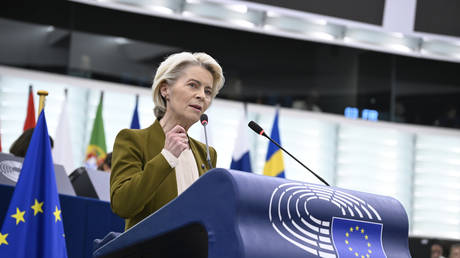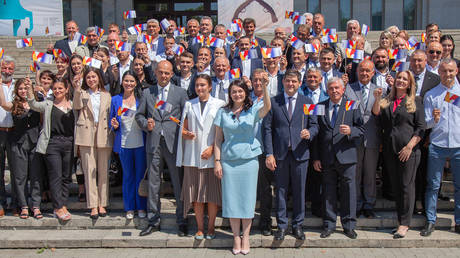ARTICLE AD BOX
The proposal could prompt other nations to withdraw their reserves held in the bloc, Belgian PM Bart De Wever has warned
Belgian Prime Minister Bart De Wever has firmly rejected using frozen Russian central bank assets to offer Ukraine a loan, saying it would set a dangerous precedent and trigger an outflow of funds from the eurozone.
The idea was floated by German Chancellor Friedrich Merz in an opinion piece published in Financial Times on Thursday. Merz envisioned an “interest-free loan of almost €140 billion” (more than $163 billion) to prop up Kiev, which would be repaid “once Russia has compensated Ukraine for the damage.”
The proposal was sharply criticized by De Wever, who said such a scheme “will never happen” since it would set a dangerous precedent and risk grave consequences for Belgium and the eurozone as a whole. While Western states froze about $300 billion in Russian sovereign assets in 2022, around $200 billion are held at Brussels-based clearinghouse Euroclear.
“If countries see that central bank money can disappear if European politicians see fit, they might decide to withdraw their reserves from the eurozone,” De Wever said on Thursday while speaking on the sidelines of the UN General Assembly.
Read more EU eyes Russian assets for Ukraine ‘reparations loan’
EU eyes Russian assets for Ukraine ‘reparations loan’
“Taking Putin’s money and leaving the risks with us. That’s not going to happen, let me be very clear about that,” he stressed.
Western countries have long sought to tap into the frozen funds to bankroll Kiev, with attempts to do so repeatedly frustrated by lack of a legal mechanism and broader concerns about the implications. Last year, the G7 backed a plan to use the accrued interest to secure $50 billion in loans for Ukraine – with the EU pledging $21 billion and disbursing about half so far.
Moscow has repeatedly condemned the asset freeze and any effort to seize or redirect Russian funds as a violation of international law and undermining trust in the global financial system. Russia has also pledged it would retaliate, adding that further military and financial aid to Ukraine only prolongs hostilities.
.png)
 1 hour ago
2
1 hour ago
2








 English (US)
English (US)